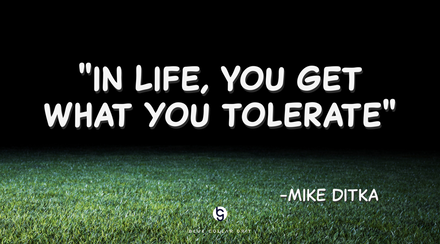Tolerating Those Who DoThe United States Military Academy at West Point has a code of honor which states, “a cadet will not lie, steal, cheat, or tolerate those who do.” Violation of this code for a cadet results in a formal investigation and a hearing process conducted by a group of their peers. Found guilty by their peers and the case will make its way up the chain of commands.
The first part of West Point’s Honor Code is as straightforward as you can get: do not lie, steal, or cheat. This is not only typically clear for a cadet choosing to join the academy, but also fairly easy to avoid for those at West Point. After all, character, to which all those points, is a significant factor in acceptance in the first place. The challenge, for most, is certainly in the second phase of the code: do not tolerate those who do. Although we may not like it, we can usually take responsibility when we have violated a code that we have chosen to accept. The problem, or question, is what are we going to tolerate? Why Should We Care? This is not a question for leaders within the United States Military Academy. This is the question for every leader of every team in the world. Whether you lead a Top 500 Company or a start-up, a Top 25 team or a Little League team, a congregation of a thousand or a family of five, the question remains the same: what will you tolerate? See, unfortunately you don’t get what you want. You get what you tolerate. Allow your child to be disrespectful, then they’ll be disrespectful. Allow kids to have their phones out at the dinner table, then they’ll have their phones out at the dinner table. Allow team members to show up late for meetings and they’ll show up late for meetings. Of course, not all of them. But, the performance of our team will always sink to the level of our lowest denominator. So, what we are tolerating ends up being what we are getting. Clearly those at West Point understand this point clearly. In their mind, doing it and allowing it are equally damaging. Consider that for a moment. Allowing a teammate to lie is equally as damaging as lying yourself. Permitting a teammate to steal is no different than you stealing yourself. Letting a teammate cheat is equivalent to you cheating yourself. Carry that thought on out … allowing a friend to be late is equally detrimental to the team as you being late; allowing a teammate to skip reps or not touch the line is the same as you not touching the line; accepting excuses from a friend is no different than you making the excuse yourself. What you tolerate is just as much an indication of your character as what you do. REAL TALK - Action Steps Drawing a line on what we tolerate requires courage. And, courage requires confidence in who we are and what we believe. With those in place, it simply becomes a choice. Here are a few options that may help you more consistently choose what you tolerate.
What you tolerate is a reflection of your standards, not someone else’s. We like to release ourselves from responsibility when we aren’t the ones taking action. Turns out, what we do and what we tolerate are equally damning. For more information on building excellence in your teams, visit us at www.bluecollargrit.com. We would love to know how we could help!
1 Comment
Dan
11/6/2023 12:25:25 pm
This is another excellent lesson... "Do not tolerate those who do".
Reply
Leave a Reply. |
About bcI'm a teacher, coach, and parent seeking excellence while defining success on my own terms. Archives
July 2024
Categories |


 RSS Feed
RSS Feed